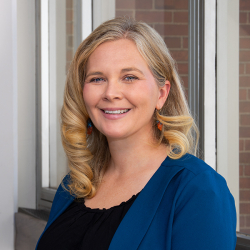Sameera Nalin Venkat defends M.S. thesis

On March 23, Sameera Nalin Venkat will defend her M.S. thesis, “Network Structural Equation Modeling of PV Minimodule Variants Under Indoor Accelerated Exposures.”
When MDS-Rely was happening, she was preparing for a poster presentation which would ultimately be the focus of her MS thesis: network structural equation modeling (netSEM) using the RStudio package developed by the SDLE Research Center, where she is an active researcher. Her research was “a blend of doing experimental work such as fabricating 4-cell PV minimodules and using stepwise evaluation techniques as well as implementing data-driven modeling to utilize the data.” Her main materials interests include degradation pathway modeling (using netSEM), fabricating PV minimodules, PV research on durability and reliability.
During her M.S. studies, Sameera felt happy winning a poster award at the 2020 Photovoltaic Reliability Workshop. The aforementioned event was her first workshop outside of CWRU and she was proud to present her research to attendees from all over the world. “I have not been someone who is naturally good at presenting to people, so it was around that time I was working on this aspect more seriously,” she said. “It was a very exciting trip and I had the opportunity to experience the diversity of PV research.”
In 2019, Sameera graduated from University of Hyderabad (UoH) with an Integrated M.Sc. (I.M.Sc.) in Chemistry. During her summer internships and M.Sc. project, Sameera discovered her interest in working in materials science. During her internship at the National Institute of Science Education and Research (NISER), India, she was learning to synthesize quantum dot solutions and investigate energy transfer between Cd-free quantum dots and J-aggregate dyes. She was selected to receive The Chennupati and Vidya Jagadish Endowment Fund (now expanded to Future Research Talent Awards) to intern at the Australian National University, ANU (Research School of Physics and Engineering). Her project at ANU was on using InP nanopillars and the effects of surface to study photoelectrochemical water splitting. It was when she realized that she liked working with instruments more than doing chemical synthesis. Being in a different department during her internship encouraged her to explore the variations in approaches to solve a research problem. During her M.Sc project at UoH, she worked on the synthesis of perovskites and using characterization techniques to study their properties and structure. These experiences fortified her interest in pursuing further studies and research.
Sameera, who is originally from Hyderabad, Telangana, India, hopes to further her studies of PV minimodule variants using netSEM and be involved in the development of the next version of the R package as she advances to her PhD studies. After she graduates from CWRU with her PhD, she hopes to work in a collaborative environment in the industry and where she can solve research problems at the interface of PV research and data science.
"From my initial days at CWRU, I have had the opportunity to meet wonderful students and supportive faculty members,” said Sameera. “Being in a smaller school and department has its own perks: a smaller classroom size which makes it easy to ask questions during lectures and the research groups are really making great strides in contributing to science. I feel inspired by seeing people in the department motivated to do their best each day. It's the drive to succeed with a positive outlook that makes the Case School of Engineering one of the nation's best.” She praised her advisors, Professor Roger French and Research Associate Professor Laura Bruckman, for “(having) shared great insights about their experiences. Their suggestions have always been helpful, be it about presentations, research ideas, or general advice. I value their support and inputs. Their excitement for research and perseverance are the qualities I look up to.”
In addition to her own studies, Sameera has been reading application essays of Indian students applying to PhD programs abroad and helping them through the application process. “It's a very happy feeling knowing that people are going to the universities of their dreams,” she said. She also enjoys creating art pieces and experimenting with vegetarian food.

